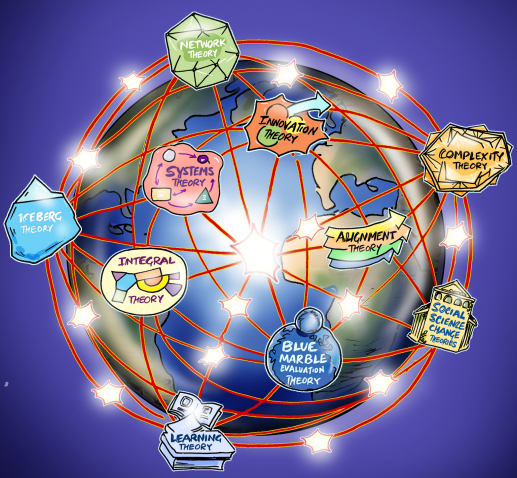Instructor: Michael Quinn Patton, PhD
Description: The field of evaluation already has a rich variety of contrasting models, competing purposes, alternatives methods, and divergent techniques that can be applied to projects and organizational innovations that vary in scope, comprehensiveness, and complexity. The challenge, then, is to match evaluation to the nature of the initiative being evaluated. This means that we need to have options beyond the traditional approaches (e.g., the linear logic models, experimental designs, pre-post tests) when faced with systems change dynamics and initiatives that display the characteristics of emergent complexities. Important complexity concepts with implications for evaluation include uncertainty, nonlinearity, emergence, adaptation, dynamical interactions, and co-evolution.
Developmental Evaluation supports innovation development to guide adaptation to emergent and dynamic realities in complex environments. Innovations can take the form of new projects, programs, products, organizational changes, policy reforms, and system interventions. A complex system is characterized by a large number of interacting and interdependent elements in which there is no central control. Patterns of change emerge from rapid, real time interactions that generate learning, evolution, and development – if one is paying attention and knows how to observe and capture the important and emergent patterns. Complex environments for social interventions and innovations are those in which what to do to solve problems are uncertain and key stakeholders are in conflict about how to proceed.
Developmental Evaluation involves real time feedback about what is emerging in complex dynamic systems as innovators seek to bring about systems change. Participants will learn the unique niche of developmental evaluation and what perspectives such as Systems Thinking and Complex Nonlinear Dynamics can offer for alternative evaluation approaches. The course will utilize the instructor’s book: Developmental Evaluation: Applying Complexity Concepts to Enhance Innovation and Use (Guilford, 2010).
Click here for more information & to register.



